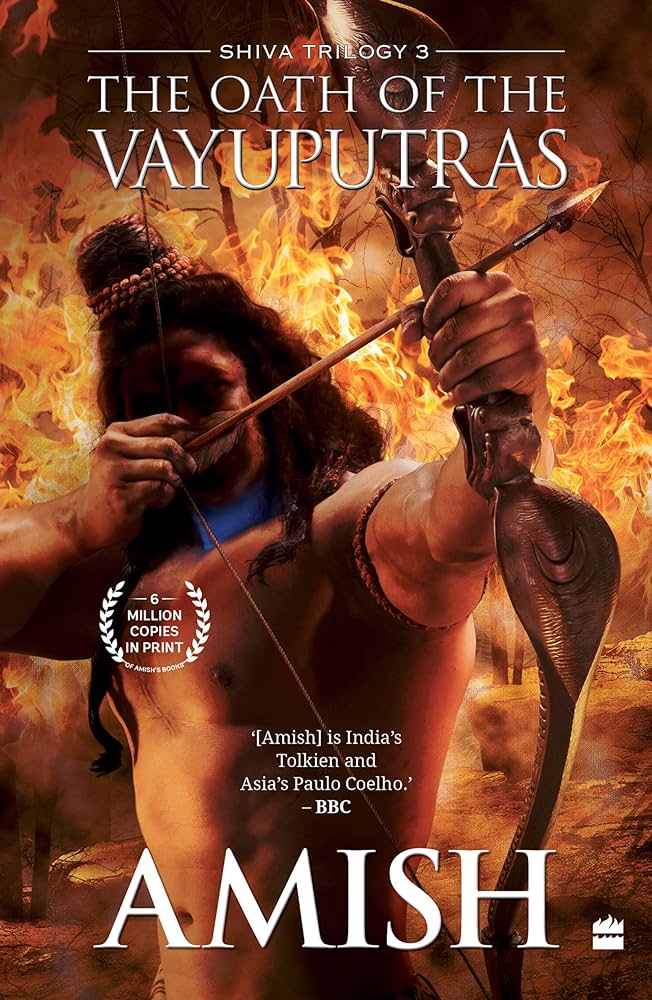Picking up from where the previous books left off, Shiva, the Neelkanth, faces his most challenging trials yet. The Meluhan Empire stands on the brink of war, and Shiva must confront the Nagas, the Brangas, and the Vasudevs. As he confronts the ultimate evil, Shiva grapples with complex moral dilemmas and the blurred lines between good and evil, further exploring the central theme of the series.
One of the standout qualities of "The Oath of the Vayuputras" is the author's imaginative world-building. Amish Tripathi continues to blend elements of mythology, history, and fantasy seamlessly, creating a vibrant and immersive backdrop that captures the essence of ancient India. The various kingdoms, races, and cultures that inhabit this world are well-crafted and contribute to the novel's depth.
The characters in the book are well-developed and have evolved throughout the series. Shiva remains a compelling and relatable protagonist, with his internal struggles and moral dilemmas adding layers to his character. The relationships between characters, particularly the dynamic between Shiva and Sati, are emotionally resonant and contribute to the story's richness.
"The Oath of the Vayuputras" delves into themes of destiny, righteousness, and the consequences of one's actions. The philosophical questions raised in the book provide readers with food for thought, encouraging them to contemplate the complexities of good and evil.
The book maintains a steady and engaging pace, with plenty of action, intrigue, and suspense to hold the reader's attention. Tripathi's writing style is accessible and easy to follow, making the book suitable for a wide range of readers.
However, some readers may find that the philosophical and moral explorations in the book, while thought-provoking, occasionally slow down the narrative's progress. The balance between action and reflection may not be to everyone's liking, but for those who appreciate philosophical discussions in fiction, it adds depth to the story.
In conclusion, "The Oath of the Vayuputras" is a fitting and satisfying conclusion to the Shiva Trilogy, offering a captivating blend of mythology, history, and fantasy. Amish Tripathi's reinterpretation of Indian mythology and the epic tale of Lord Shiva is a refreshing and imaginative journey. This book, like the rest of the series, presents moral dilemmas that engage readers long after they've finished reading. It is a must-read for those who enjoy philosophical fiction, Indian mythology, and epic fantasy.




Comments (0)